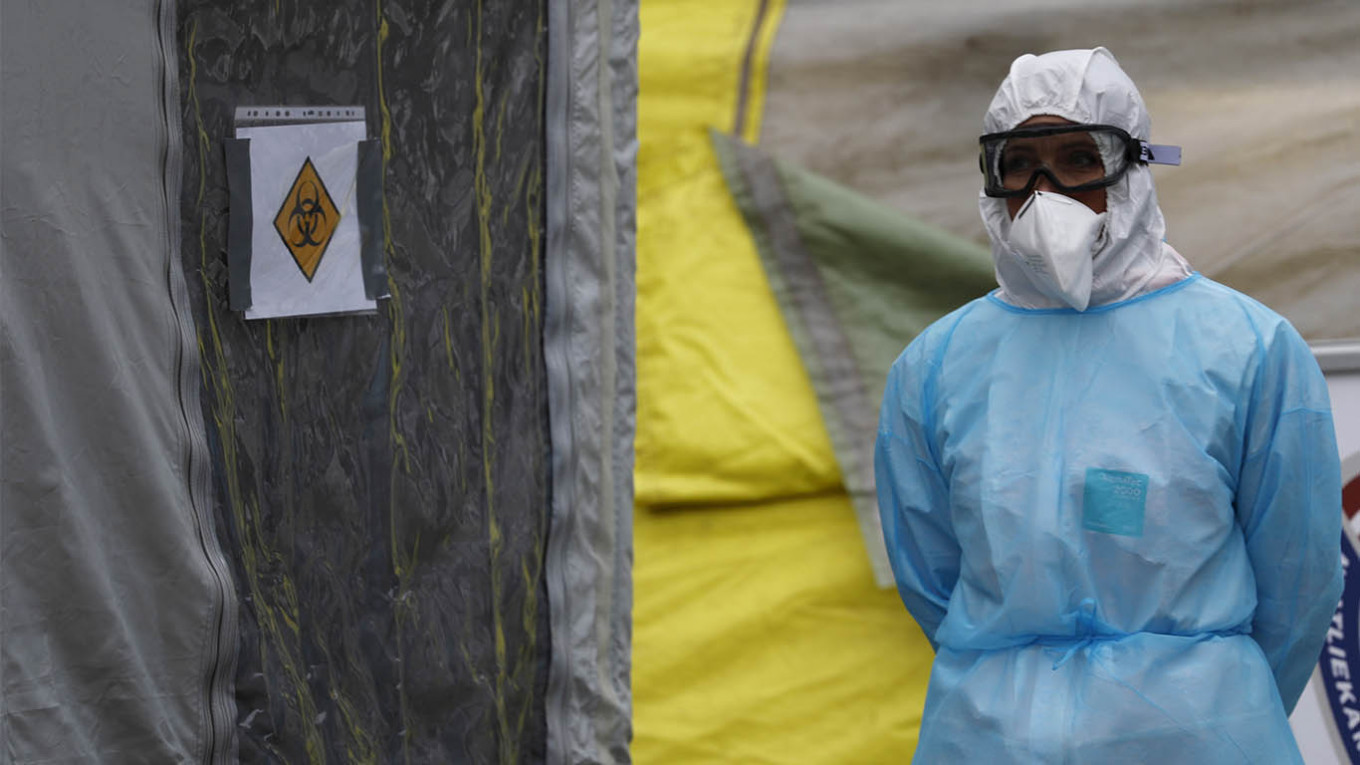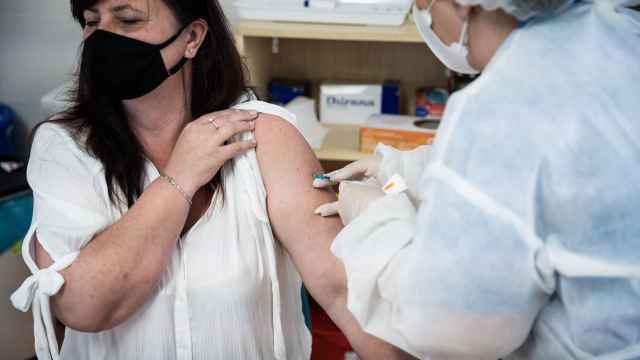Russian media have deployed a "significant disinformation campaign" against the West to worsen the impact of the coronavirus, generate panic and sow distrust, according to a European Union document seen by Reuters.
Pushing fake news online in English, Spanish, Italian, German and French, the Russian campaign uses contradictory, confusing and malicious reports to make it harder for the EU to communicate its response to the pandemic, the report said.
The Kremlin denied the allegations on Wednesday, saying they were unfounded and lacked common sense.
"A significant disinformation campaign by Russian state media and pro-Kremlin outlets regarding Covid-19 is ongoing," said the nine-page internal document, dated March 16, using the name of the disease that can be caused by the coronavirus.
"The overarching aim of Kremlin disinformation is to aggravate the public health crisis in Western countries ... in line with the Kremlin's broader strategy of attempting to subvert European societies," the document produced by the EU's foreign policy arm, the European External Action Service, said.
A specialist EU database has recorded almost 80 cases of disinformation about coronavirus since Jan. 22, it said.
Kremlin spokesman Dmitry Peskov pointed to what he said was the lack of a specific example or link to a specific media outlet in the EU document.
"We're talking again about some unfounded allegations which in the current situation are probably the result of an anti-Russian obsession," said Peskov.
The EU document cited examples from Lithuania to Ukraine. It said that on social media, Russian state-funded Spanish-language RT Spanish was the 12th most popular news source on coronavirus between January and mid-March, based on the amount of news shared on social media.
The EEAS declined to comment directly on the report.
The European Commission said it was in contact with Google, Facebook, Twitter and Microsoft. An EU spokesman accused Moscow of "playing with people's lives" and appealed to EU citizens to "be very careful" and only use news sources they trust.
'Human creation'
The EU and NATO have accused Russia of covert action, including disinformation, to try to destabilize the West by exploiting divisions in society.
Russia denies any such tactics, and Russian President Vladimir Putin has accused foreign foes of targeting Russia by spreading fake news about the outbreak to sow panic.
Russian media in Europe have not been successful in reaching the broader public, but provide a platform for anti-EU populists and polarise debate, analysis by EU and non-governmental groups has shown.
The EEAS report cited riots at the end of February in Ukraine, a former Soviet republic now seeking to join the EU and NATO, as an example of the consequences of such disinformation.
It said a fake letter purporting to be from the Ukrainian health ministry falsely stated here were five coronavirus cases in the country. Ukrainian authorities say the letter was created outside Ukraine, the EU report said.
"Pro-Kremlin disinformation messages advance a narrative that coronavirus is a human creation, weaponised by the West," said the report, first cited by the Financial Times.
It quoted fake news created by Russia in Italy, the second-most heavily affected country in the world, that health systems would be unable to cope and doctors would choose who lived or died because of a lack of beds.
The EEAS has also shared information with Slovakia over the spread of fake news accusing the country's prime minister, Peter Pellegrini, of being infected with the virus and saying he may have passed on the infection to others at recent summits.
EU leaders have been conferring by videoconferences since early March.
A Message from The Moscow Times:
Dear readers,
We are facing unprecedented challenges. Russia's Prosecutor General's Office has designated The Moscow Times as an "undesirable" organization, criminalizing our work and putting our staff at risk of prosecution. This follows our earlier unjust labeling as a "foreign agent."
These actions are direct attempts to silence independent journalism in Russia. The authorities claim our work "discredits the decisions of the Russian leadership." We see things differently: we strive to provide accurate, unbiased reporting on Russia.
We, the journalists of The Moscow Times, refuse to be silenced. But to continue our work, we need your help.
Your support, no matter how small, makes a world of difference. If you can, please support us monthly starting from just $2. It's quick to set up, and every contribution makes a significant impact.
By supporting The Moscow Times, you're defending open, independent journalism in the face of repression. Thank you for standing with us.
Remind me later.






